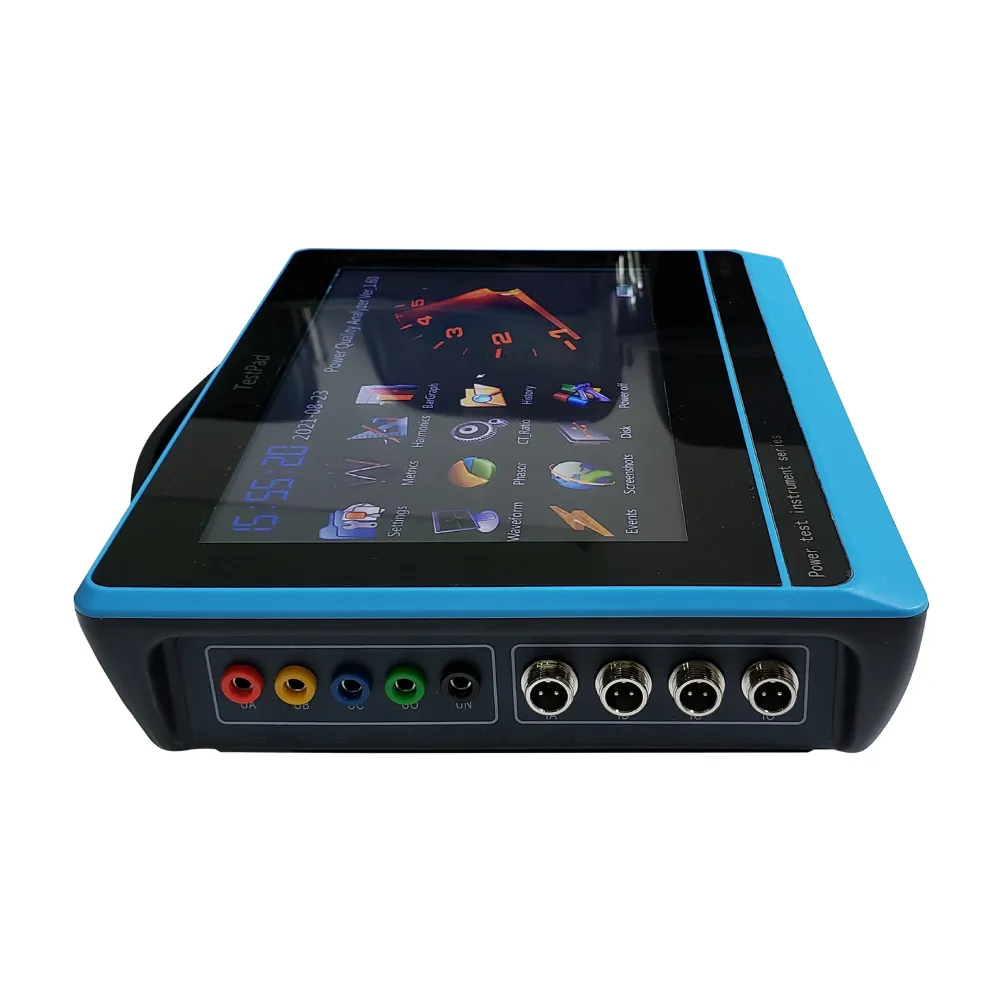 English
English


single phase power analyzer
Understanding Single Phase Power Analyzers
In today's increasingly complex electrical environments, the need for accurate measurement and analysis of electrical power has become paramount. The single phase power analyzer is a critical tool for engineers, technicians, and researchers involved in various applications, including residential energy monitoring, industrial control systems, and electric power quality assessment. This article delves into the functionality, importance, and applications of single phase power analyzers.
What is a Single Phase Power Analyzer?
A single phase power analyzer is an instrument designed to measure various electrical parameters of single phase systems. It typically provides data on voltage, current, power factor, real power (measured in watts), reactive power (measured in volt-amperes reactive or VARs), apparent power (measured in volt-amperes or VA), and energy consumption over time. These parameters are essential for understanding how effectively electrical energy is being used in a circuit.
Key Parameters Measured
1. Voltage and Current The fundamental parameters that define a single phase system. These measurements are critical for determining the overall health of an electrical system. 2. Real Power (P) This is the actual power consumed by the load, indicating how much energy is being used effectively. Real power is calculated in watts (W) and is crucial for assessing energy efficiency.
3. Reactive Power (Q) This power does not perform any useful work but is necessary for maintaining the magnetic and electric fields in the system. It is measured in VARs and can indicate potential issues in power systems, such as overloading transformers.
4. Apparent Power (S) This is the combination of both real and reactive power and is measured in VA. It provides a picture of the total power in the circuit, regardless of how much is actually being converted into work.
5. Power Factor (PF) The ratio of real power to apparent power, indicating how effectively the electrical power is being converted into usable work. A low power factor can indicate inefficiencies and lead to higher electricity bills and strain on the electrical system.
Importance of Single Phase Power Analyzers
single phase power analyzer

The importance of single phase power analyzers cannot be overstated. They play a crucial role in optimizing energy consumption, reducing costs, and enhancing the lifespan of electrical equipment. Here are some key reasons why these devices are vital
- Energy Efficiency By providing accurate and detailed information about power consumption and efficiency, these analyzers help organizations identify areas where energy loss occurs, allowing for timely interventions to improve efficiency.
- Compliance and Standards For many industries, meeting regulatory standards regarding energy use and emissions is essential. Power analyzers provide data required for compliance reporting and can help ensure that organizations adhere to necessary regulations.
- Troubleshooting In the event of an electrical failure, a power analyzer can help diagnose issues by providing insights into electrical behavior leading up to the problem. This capability allows for quicker resolution of faults and minimizes downtime.
- Performance Monitoring Continuous monitoring of power parameters helps in the long-term analysis of system performance. This information can be used for predictive maintenance, ensuring that equipment operates optimally without unexpected failures.
Applications of Single Phase Power Analyzers
Single phase power analyzers are used in a wide variety of applications. In residential settings, they can help homeowners track energy usage, identify peak consumption periods, and take corrective actions to reduce electricity bills. In industrial environments, these analyzers facilitate energy management strategies and assist in the maintenance of equipment, ensuring that operations remain efficient.
Moreover, they are used in research settings to study power quality and the impact of different loads on electrical systems. This data aids in the development of better power management technologies and sustainable energy solutions.
Conclusion
In conclusion, single phase power analyzers are indispensable tools that provide critical insights into the functioning of electrical systems. By measuring key parameters such as voltage, current, and power factors, these devices equip users with the knowledge necessary for energy efficiency, compliance, and maintenance. As the world moves towards more energy-efficient practices, the role of power analyzers becomes even more significant, paving the way for innovative solutions in power management and optimization.
-
Differences between open cup flash point tester and closed cup flash point testerNewsOct.31,2024
-
The Reliable Load Tap ChangerNewsOct.23,2024
-
The Essential Guide to Hipot TestersNewsOct.23,2024
-
The Digital Insulation TesterNewsOct.23,2024
-
The Best Earth Loop Impedance Tester for SaleNewsOct.23,2024
-
Tan Delta Tester--The Essential Tool for Electrical Insulation TestingNewsOct.23,2024





